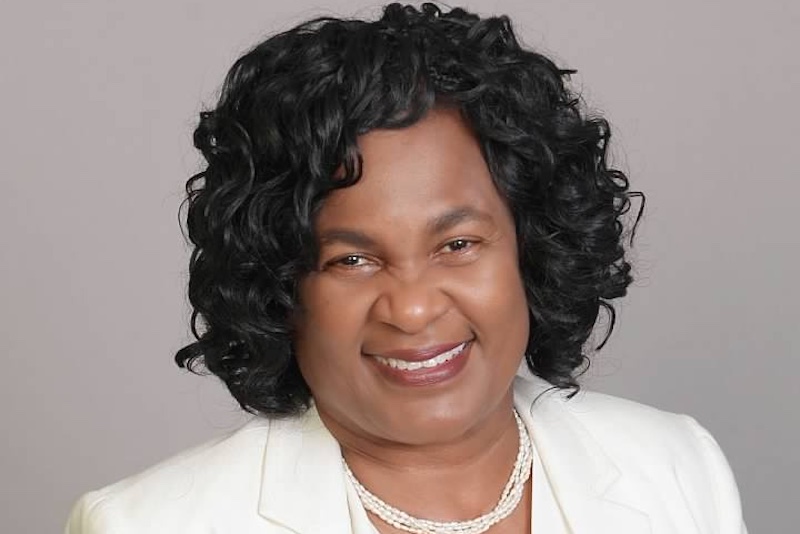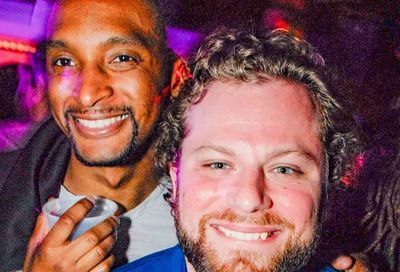Mayor Vincent Gray reflects on the International AIDS Conference
Special Issue: AIDS 2012
MW: Do you recall the year?
GRAY: I think it was 1992. It was a long time ago.
MW: When the house was on fire.
GRAY: Absolutely. We were already seeing substantial increases in levels of infection here in the city. Treatment was sporadic and unorganized. So, to see where we are today, 20 years later, is personally gratifying for me – but also recognizing that we’ve still got a long way to go. We’re doing a better job of treating, but we can’t rest until we get to the point where we have a cure or we have prevention programs that are really stopping it.
MW: Dr. Pat Hawkins, who really gives you her stamp of approval–
GRAY: That’s not easy to achieve, either. [Laughs.]
MW: She told me a little about you and HIV/AIDS activist Hank Carde, who had been on a hunger strike. What happened?
GRAY: Hank was phenomenal. He was the advocate’s advocate. What he was concerned about was he felt the resources that we had begun to acquire through federal grants were not being translated into actions quickly enough. And I think he was right. There was a lot of bureaucracy during those days. He was sitting out in front of this building, and someone came and told me. I said, ”You know, I’m not going to ask somebody to go do this. I’m going to go down there myself, because at the end of the day he’s going to have to feel like he’s talking to someone who has some capacity to make changes.” So we literally sat out in front of this building in the rain and I said, ”Look, Hank, you’ve got me, everything I can possibly do to make this work. Frankly, we need you. We need your advocacy. We need your commitment. We need your firsthand experience with this epidemic, somebody’s who’s HIV-positive.” I think he had full-blown AIDS by that time. We sat out there for a long time. Finally – I’ll never forget that as long as I live – finally he agreed to come in. And I made a commitment to him that we would get those grant dollars out into the community, and we did. He was quite an advocate. I followed Hank, interacted with Hank, quite extensively in the aftermath.
MW: This happened when you were a councilmember?
GRAY: No, I was director of DHS. As a matter of fact, one of the awards I got that really means a lot to me, still, is from Whitman-Walker Clinic [now Whitman-Walker Health]. I got the award for Public Employee of the Year, which meant a lot to me, because this was such a difficult problem we were addressing, and many people in public service were very suspect in terms of their commitment to solving this issue. To get that award was huge to me. Still is today.
MW: Living in D.C. as long as you have, it would’ve been hard not to lose someone you knew personally.
GRAY: Melvin Boozer. Melvin actually was a candidate for vice-president of the United States at one time. We went to the same Dunbar High School. He was a brilliant guy, went to Dartmouth, was very much an activist.
MW: When you were at Covenant House, working with homeless youth, were there many LGBT youth? Were there many HIV-positive youth?
GRAY: Yeah. We had an open-door policy. We weren’t going to turn anyone away. What a hypocritical thing that would’ve been to do. We provided shelter, transitional living, education, vocational training – and everybody was treated equal. It didn’t matter whether you were HIV-positive or not. Of course, for youth we knew had a problem, we made sure they were connected with health care. We’d try to get them connected to the services of Whitman-Walker and the others that existed.
MW: Looking at the latest annual HIV/AIDS report, there are good numbers, but always progress to be made. What do we need for that? Less stigma? Is that why you get publicly tested for HIV?
GRAY: You’ve got to get out there and make the statement. I do that every year. With the increasing sophistication of testing, you get the results in a matter of minutes.
MW: What else do we need to fight HIV in D.C?
GRAY: We’ve got to continue with what I call ”the big four.” Education, testing, counseling, and then for those who may be HIV-positive or have AIDS, we’ve got to continue treatment.
I think we have a great team of people working in our Health Department now, led by Dr. [Mohammad] Akhter. One of the things we’ve done, too, is within our own health care system we have broken down this perception that AIDS or HIV is served over there. It now is a much more mainstream issue. You see the greater integration with other efforts in the health infrastructure. The commission that I appointed after becoming mayor really was working to do that, to try to do a couple of things: treatment on demand, which gets people quickly served; and then treating the whole person. You don’t just treat AIDS, and then treat everything else somewhere else. A much more integrated approach is very important. In fact, one of the things that I want to see is that the day will come when we don’t have ”AIDS organizations,” that it becomes an inherent part of our health care approach so that anywhere you go [for health care], anybody can expect to be served with dignity and effectiveness.
MW: When it comes to health care, would you say D.C. is leading the way?
GRAY: I don’t think there’s any question. When you look at the statistics, which have been looked at extensively in the wake of the litigation, the Supreme Court’s view of the Affordable Care Act, we’re one of the top states, if you will, in providing care, in providing coverage – almost 95 percent of our adults have coverage now, and 97 percent of our children. We are leading in terms of children who are covered, and we’re second in the nation in terms of adults. Now that’s not the answer, but it does open the door to be able to receive care. Of course, by 2014, we should be at a stage where there should be no one who doesn’t have access to health insurance. But then we’ve got to make sure there’s access. It’s one thing to have health care insurance; it’s another to have services that are reasonably, equally available to you across the city.
MW: As a resident, one thing that frightens me about services in the District is congressional interference. The Washington Post – shortly after former Council Chairman Kwame Brown (D) resigned, I believe – quoted Rep. Jason Chaffetz (R-Utah), a member of the House committee with D.C. oversight, saying, ”City leaders keep arguing for more autonomy, but it’s hard to get there when so many keep getting indicted.”
GRAY: That’s ridiculous. It’s a nonsensical non sequitur.
MW: He’s sort of the antithesis of everything D.C. residents vote for. So, when Chaffetz says something like that, I think of Congress blocking needle exchange, blocking for years my own domestic partnership. How do you respond to a statement like that?
GRAY: I just did. It’s a nonsensical non sequitur. And it’s ridiculous. First of all, if you look at the Congress itself, how many members have left the Congress [due to corruption]? They didn’t suggest the Congress should lose some of its autonomy.
If you look at the issues we’re talking about now, the District is a national leader. Yes, we do have an epidemic. And, frankly, we’re going to live with epidemic-level statistics for a while, one of the principle reasons being we’ve found ways to extend life. People will live with this condition for a very long time. That needs to be understood. The data need to be looked at in terms of whether we’re stemming new incidences of people being tested as positive, having full-blown AIDS. We haven’t had a case of pediatric AIDS since 2009; 122,000 people have been tested – the most ever in the history of this city; 4-5 million condoms have been distributed across the city. When you look at the transmissions through IV drug use, down from, like, 150 a few years ago to, like, in the 40s…. If he really was serious about this, he would look at the data and not make ridiculous statements like that.
Support Metro Weekly’s Journalism
These are challenging times for news organizations. And yet it’s crucial we stay active and provide vital resources and information to both our local readers and the world. So won’t you please take a moment and consider supporting Metro Weekly with a membership? For as little as $5 a month, you can help ensure Metro Weekly magazine and MetroWeekly.com remain free, viable resources as we provide the best, most diverse, culturally-resonant LGBTQ coverage in both the D.C. region and around the world. Memberships come with exclusive perks and discounts, your own personal digital delivery of each week’s magazine (and an archive), access to our Member's Lounge when it launches this fall, and exclusive members-only items like Metro Weekly Membership Mugs and Tote Bags! Check out all our membership levels here and please join us today!





















